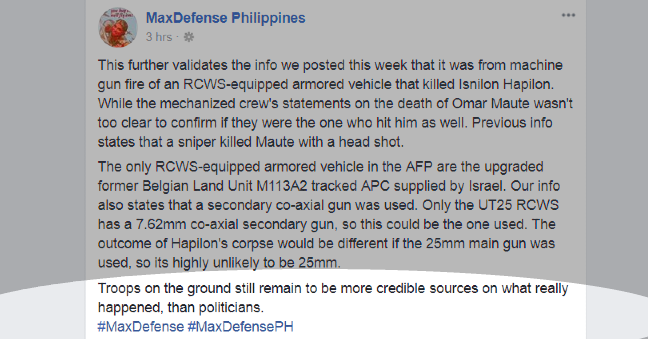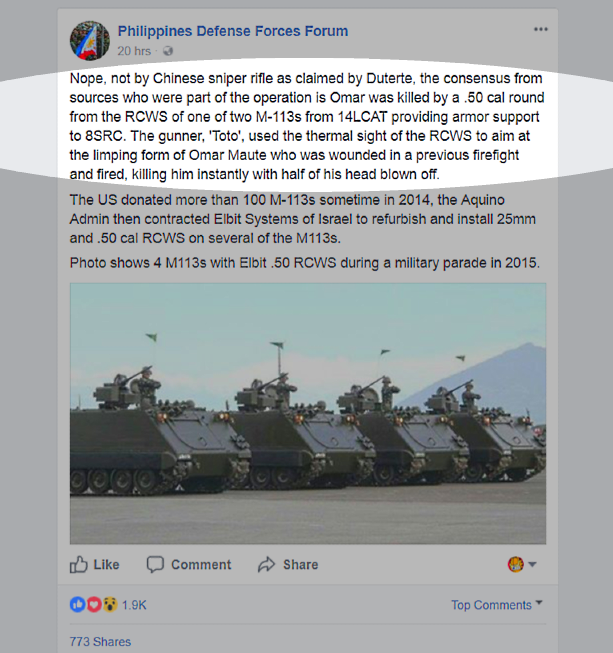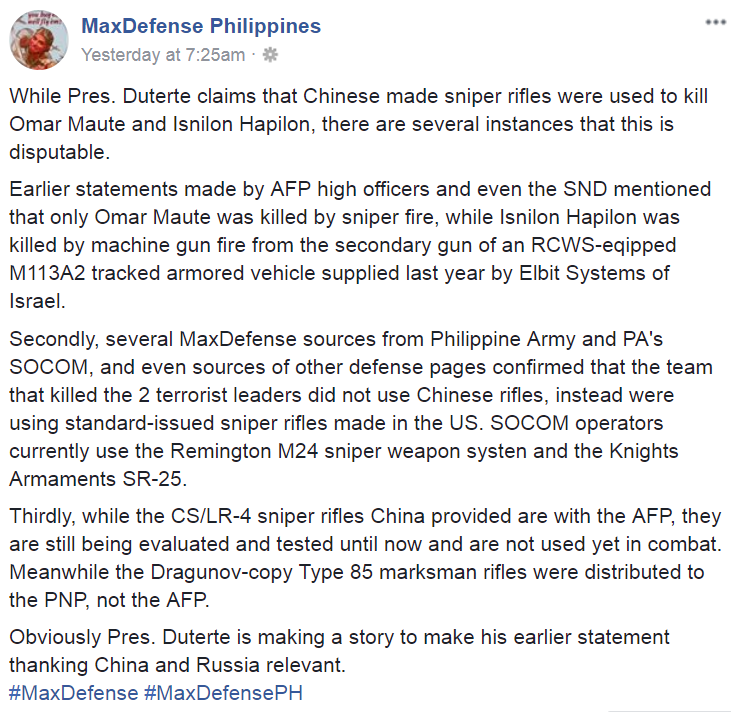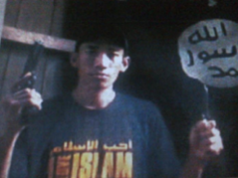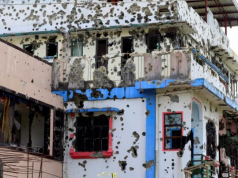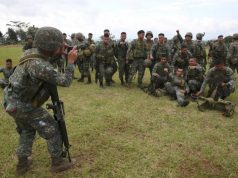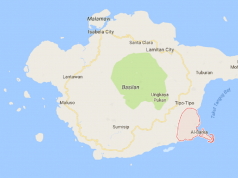In the video clip above, recorded on October 17 in Naga City, Camarines Sur, President Rodrigo Duterte claims that it was the use of Chinese sniper rifles – “those long ones” – that killed terrorists Isnilon Hapilon and Omarkhayam Maute in the Battle of the Islamic City of Marawi.
“Libre ha? China, dalawang beses na naglipad dito … And yung sniper [rifles] nila was of great help. Yung mahaba nila na sniper. Yun ang nakakuha … yung dalawa nang madaling araw. Yun ang nakakuha, it’s a distance of about one kilometer. Isang kilometro yun eh (At no cost, mind you. Two shipments from China. And the sniper rifles were of great help. The long ones. Those were the ones who got them before dawn, at a distance of about one kilometer).”
That statement would seem authoritative enough, coming as it did from a presumably informed declaration by President Duterte, who is, after all, the country’s chief executive.
That presidential sally promptly sent the nation aflutter.
The extended community of cognoscenti in things military was quick to take up that piece of presidential sound bite.
One of the earlier comments was in the Facebook Inside Military Forum page:
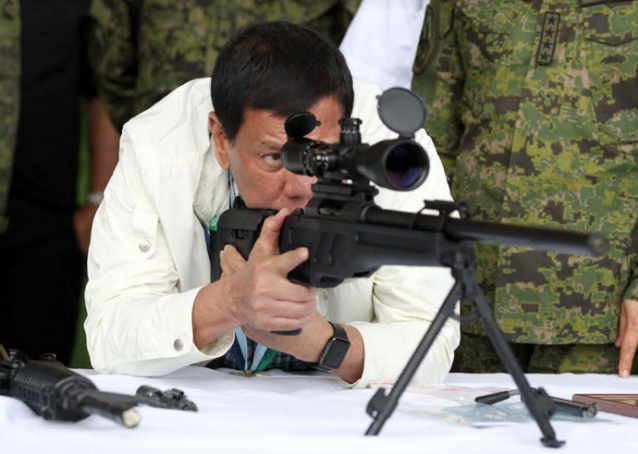
And then an online reaction went off like this: “The shooting appears to have been done by an RCWS mounted on an APC, not by a sniper.”
Still another: “my question is why go through all these trouble to credit the Chinese when Lorenzana already thanked the ninja like contribution(s) of the Americans.”
Below is the screenshot of one of the earliest unfiltered comments, from the Facebook Group Philippine Defense Forum:
Again, from the Philippines Defense Forces Forum: “Even the operators are not sure who hit who. Only one thing is sure, no Chinese rifle fired from 1000 meters away was involved. :)”
And here’s one replete with unfiltered military jargon that did not intend to reveal too many details: “Without revealing too many details, here’s what we know: JSOU teams initiated contact with enemy at building they occupied, which flushed them out of said building and attempted to escape towards port area, but unfortunately for them they ran into SBF composed of SR elements and supported by 1 FSV and 1 RCWS. RCWS gunner saw enemy approaching on his monitor on thermal sensor and opened fire on enemy fighters in the lead, SR section also opened fire. Group of 16 hostages who were in the building extricated themselves and approached the government troops, security checked then moved to secured rear area. Cadavers of OM and IH were recovered from street were they fell dead at 0630H by 8SRC supported by 1 APC and 1 FSV.”
In a number of online discussions, a lot of attention weighed in on the acronym RCWS and the American-supplied M-113 Armored Personnel Carrier (APC) or “ACAV” (armored cavalry assault vehicle) used in the Battle of Marawi.
The M113 is a fully tracked armored fighting machine developed by Food Machinery Corp (FMC) and widely used by the U.S. Army in the Vietnam War, earning the nickname ‘Green Dragon’ by the Viet Cong.
Around 2015, the Armed Forces of the Philippines received more than a hundred M-113 tracked APCs from the United States. Elbit System upgraded 28 of them with 25mm unmanned turrets, 12.7mm remote controlled weapon stations (RCWS), and fire control systems (FCS) for 90mm turrets. (Israel Defense: http://www.israeldefense.co.il/en/node/30544)
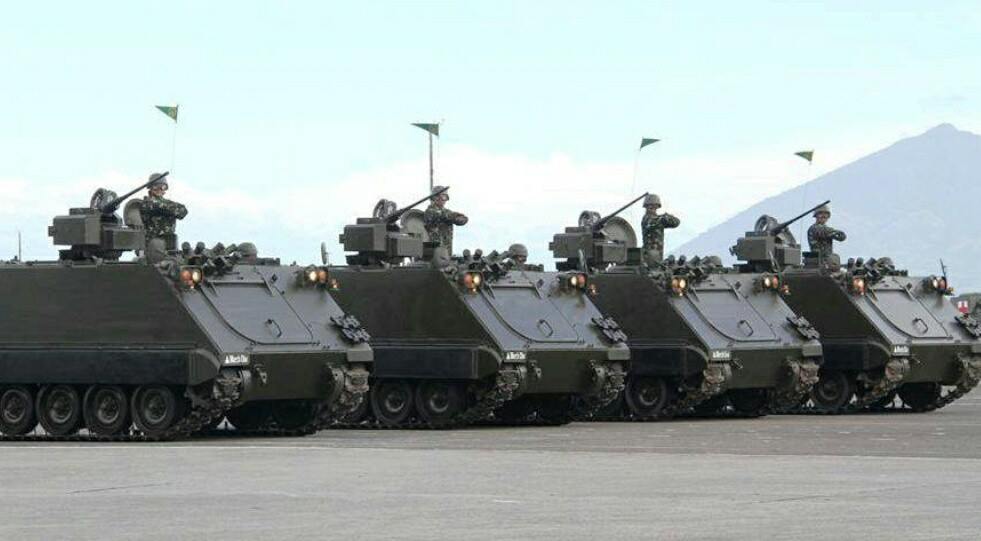
Here’s a summary description: “The improved version of M113A2 Armored Personnel Carriers will have Remote Control Weapons System (RWS) designed by Elbit Systems. The electronically-driven turrets can be configured with various types of cannons (25 or 30mm), coaxial machine guns (7.62mm) and guided anti-tank missiles. Featuring a high first-round hit probability, the dual-axis stabilized turret is designed for firing on-the-move and at moving targets. Fully overhead with no deck penetration, the turrets do not compromise the vehicle’s armor protection and preserve existing space within the vehicle. In addition, the turrets provide enhanced situational awareness under closed hatches and are easily adaptable to a wide range of new and existing vehicles.”
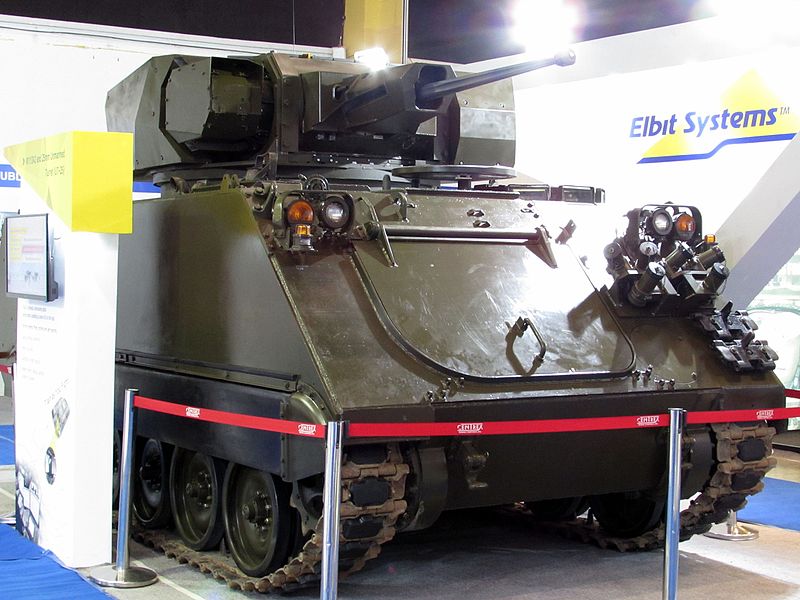
Click below to watch a video posted by the YouTube account Gallery Military:
As for the use of Chinese-supplied sniper rifles, a source from the Philippine Army Training and Doctrine Command, based in Santa Lucia, Capas, Tarlac, requesting anonymity for not having authorization to speak in official capacity, said, in so many words:
“diba sir?! … reco you read up on how complicated military sniping is. you’ll see that these warriors literally carry with them a notebook of numerical data on how their rifles behave in different conditions. a sniper accumulates these over months shooting the same rifle … I don’t think we fielded the russian/chinese rifles. too early pa. matagal mag field test ng rifles sir (It’s too early, rifle field tests take a long time).”
Bottom line: The crowd-sourced drift of the reactions so far indicates that it takes a long time for our military’s long-range rifle experts, or snipers, to cozy up to a sniper rifle, which becomes a piece of equipment more dearly embraced and crucial to his life than his wife when the critical time comes. The Chinese arms may be useful, but apparently NOT in the Marawi armed conflict theater.
On Wednesday, October 18, this post below:
And, this post is from Thursday morning, October 19, 2017:
